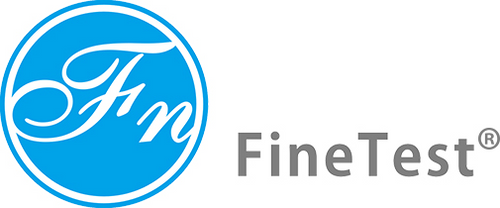Product Description
Recombinant Human Purine nucleoside phosphorylase (PNP) is available at Gentaur for Next week Delivery.
Gene Name: PNP
Alternative Names : Inosine phosphorylaseInosine-guanosine phosphorylase
Expression Region : 1-289aa
AA Sequence : MENGYTYEDYKNTAEWLLSHTKHRPQVAIICGSGLGGLTDKLTQAQIFDYGEIPNFPRSTVPGHAGRLVFGFLNGRACVMMQGRFHMYEGYPLWKVTFPVRVFHLLGVDTLVVTNAAGGLNPKFEVGDIMLIRDHINLPGFSGQNPLRGPNDERFGDRFPAMSDAYDRTMRQRALSTWKQMGEQRELQEGTYVMVAGPSFETVAECRVLQKLGADAVGMSTVPEVIVARHCGLRVFGFSLITNKVIMDYESLEKANHEEVLAAGKQAAQKLEQFVSILMASIPLPDKAS
Sequence Info : Full Length
Tag Info : N-terminal 6xHis-SUMO-tagged
Theoretical MW : 48.1 kDa
Storage Buffer : Tris/PBS-based buffer, 5%-50% glycerol. If the delivery form is lyophilized powder, the buffer before lyophilization is Tris/PBS-based buffer, 6% Trehalose, pH 8.0.
Endotoxin Level : Not tested-
Biological Activity : Not tested
Storage : Short term: -20°C; Long term: -80°C. Minimize freeze and thaw cycles.
Research Area : Metabolism
Restriction : For Research Use Only. Not for use in diagnostic procedures, drug use, or for administration to humans or animals.
Relevance : The purine nucleoside phosphorylases catalyze the phosphorolytic breakdown of the N-glycosidic bond in the beta-(deoxy)ribonucleoside molecules, with the formation of the corresponding free purine bases and pentose-1-phosphate.
Function : The purine nucleoside phosphorylases catalyze the phosphorolytic breakdown of the N-glycosidic bond in the beta-(deoxy)ribonucleoside molecules, with the formation of the corresponding free purine bases and pentose-1-phosphate.
Involvement in disease : Purine nucleoside phosphorylase deficiency (PNPD)
Subcellular location : Cytoplasm, cytoskeleton, Cytoplasm
Protein Families : PNP/MTAP phosphorylase family
Tissue Specificity : Expressed in red blood cells; overexpressed in red blood cells (cytoplasm) of patients with hereditary non-spherocytic hemolytic anemia of unknown etiology.
Paythway :
Uniprot ID : P00491
 Euro
Euro
 British Pound
British Pound
 US Dollar
US Dollar








